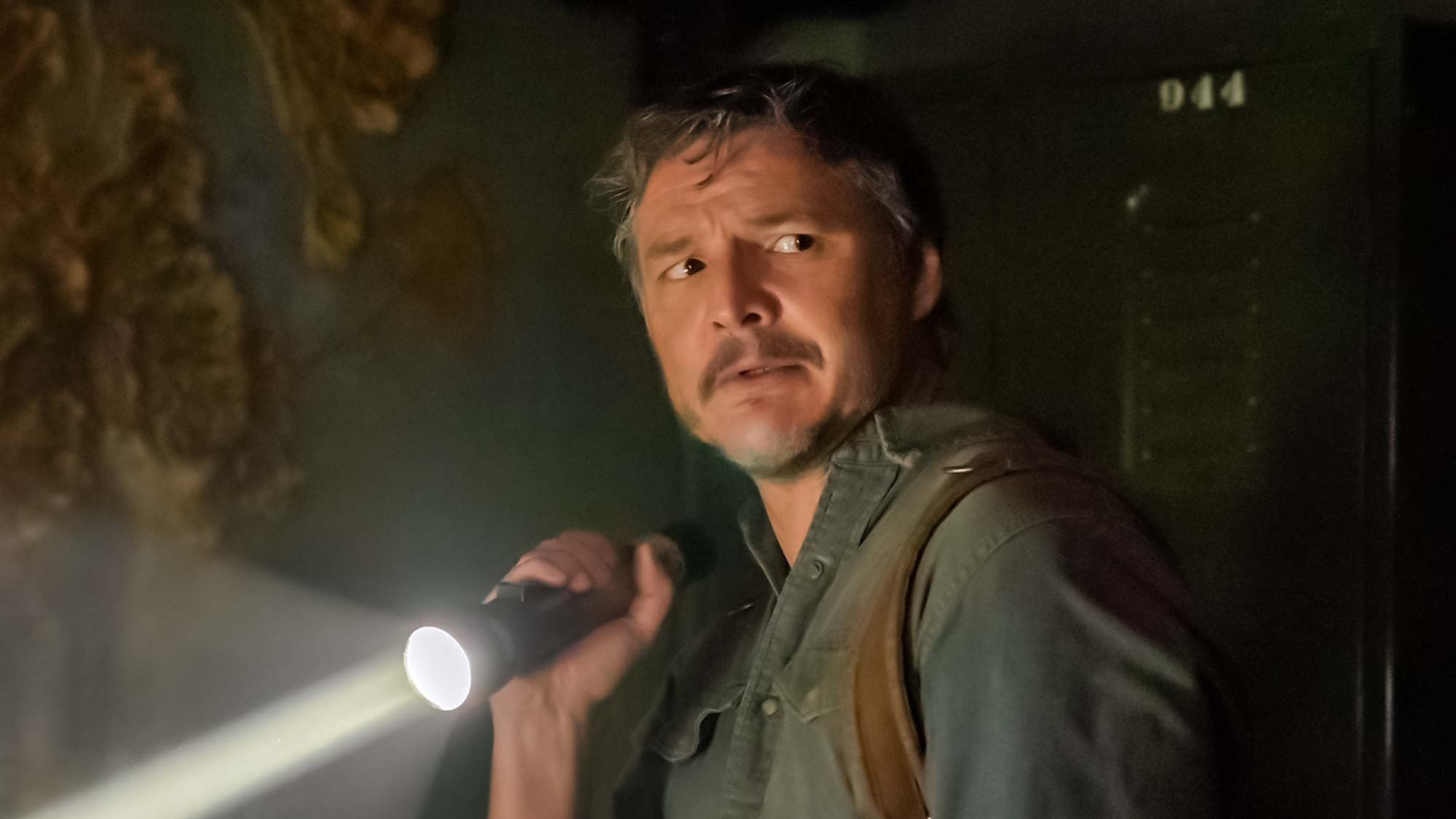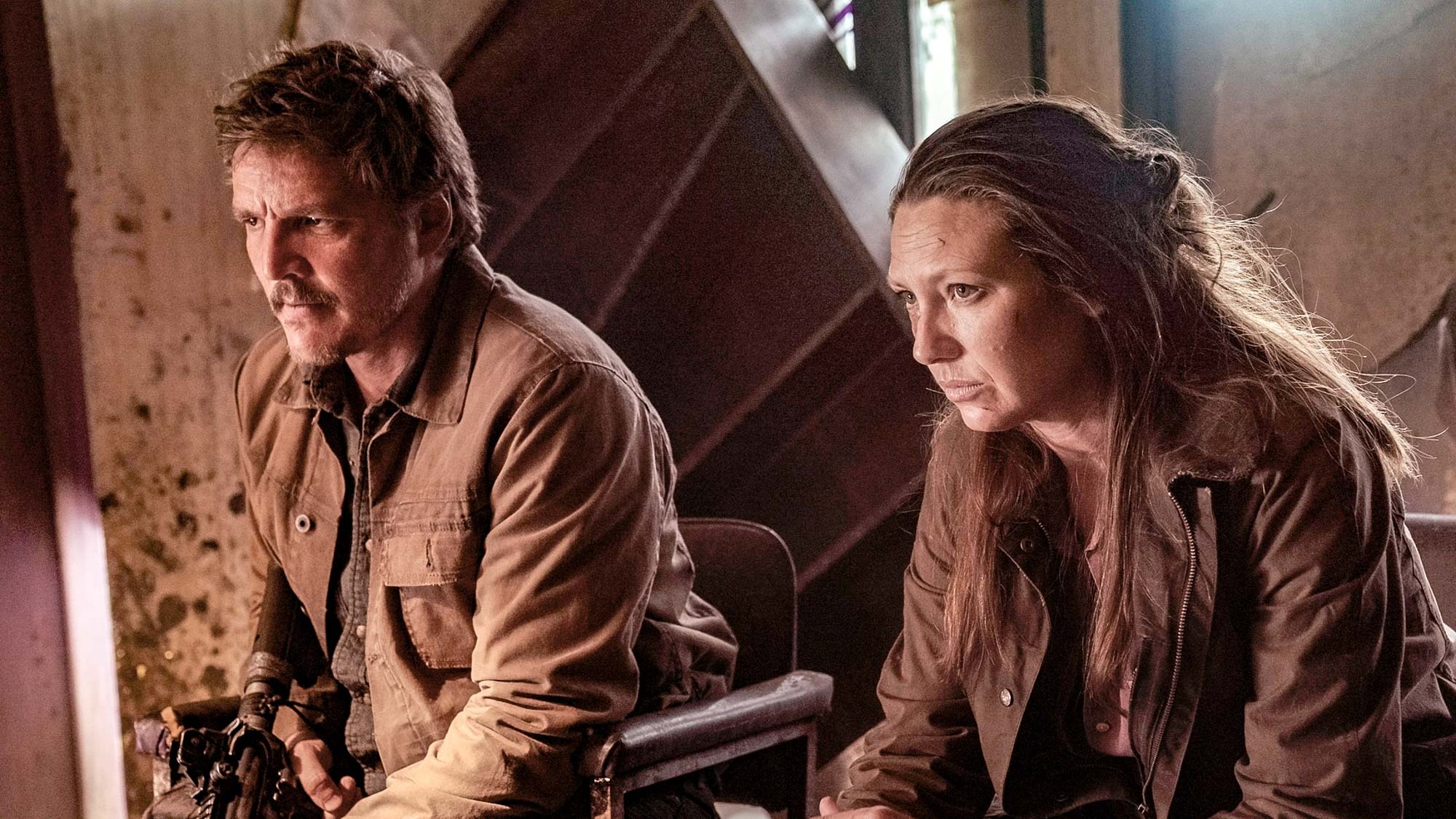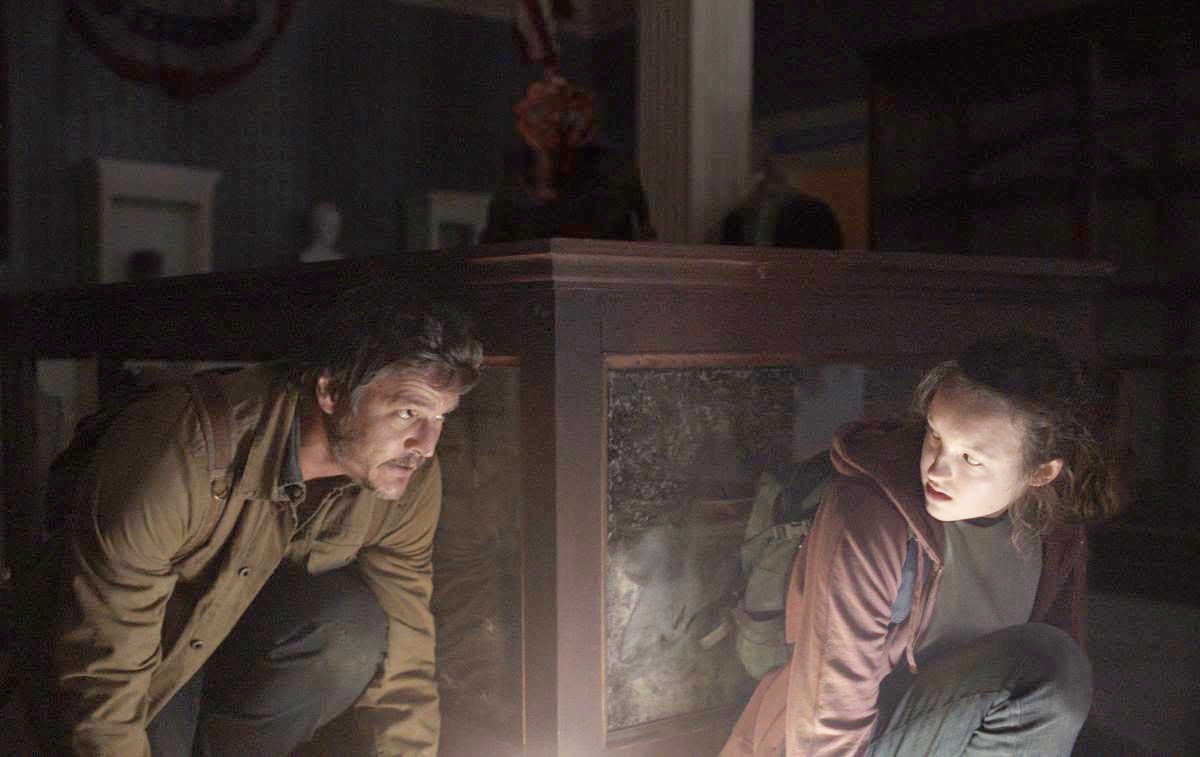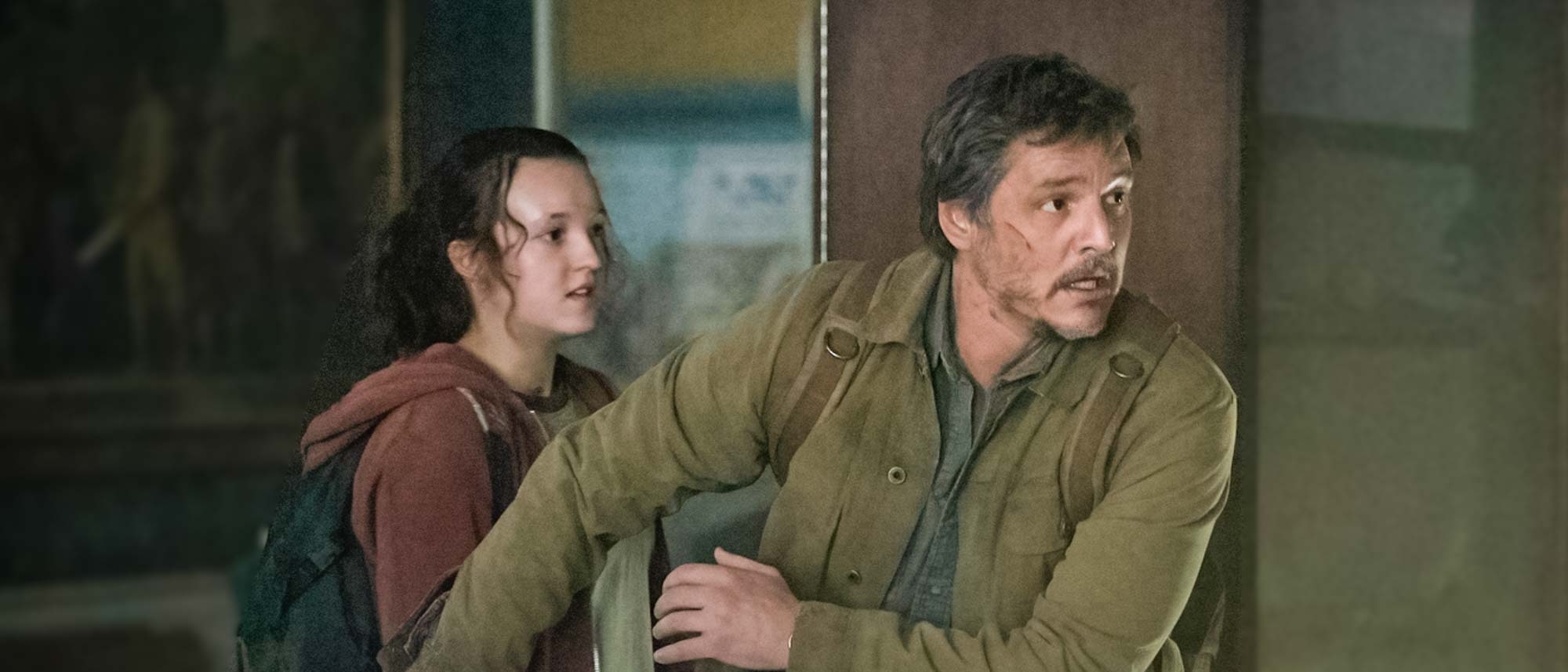Tom's Guide Verdict
HBO's The Last of Us isn't just a front-runner for best video game adaptation ever. It's also a fantastic series about life in a post-apocalyptic world. Everything feels lived-in and real, and it's as immersive as any video game. We will be updating this review as the season progresses.
Pros
- +
Pedro Pascal is fantastic as Joel
- +
Smart additions to the story
- +
Nick Offerman's Bill gets upgraded
Cons
- -
Lacks the game's eerie fog of infectious spores
- -
We have to wait week to week
Why you can trust Tom's Guide
Much like the infecteds on The Last of Us, HBO has rewired my brain with its latest Sunday night series. And I need more now. The Last of Us, an adaptation of the titular video game series, is (so far) the best new show on HBO in a while. Yes, I rank it above House of the Dragon.
But let's just get one coincidence out of the way up front: The Last of Us is a science-fiction drama where a smuggler (Pedro Pascal's Joel) has to transport an important child (Bella Ramsey's Ellie), across a large distance. Yes, that's awfully similar to Pascal's other TV show that's about to come back (The Mandalorian season 3 arrives in March), but The Last of Us game beat Mando S1 to the TV by around 6.5 years. Much like Mando's adventure, The Last of Us will get a second season, as HBO confirmed The Last of Us season 2!
In its first four episodes (the only ones provided to critics), The Last of Us has proven to be the early candidate for best show of the year. Not only does it break away from the video game in slight ways that are for the better, but its third episode is a masterclass in storytelling. This opening weekend, I've found myself rewatching those episodes, and changing my mind on Ellie.
While this review is still a spoiler-free review that is overarching about the first four episodes, we have to shoutout the fantastic work done in The Last of Us episode 3. And read our The Last of Us episode 4 recap and review to see what we thought of the next leg of the journey.
Written and directed by Craig Mazin (HBO's Chernobyl) and Neil Druckmann (creator of the game), The Last of Us is amazing. And while this review was written before we could watch The Last of Us episode 9, it will be updated with our thoughts on that episode (and episode 5 through 8 too) soon.
In this The Last of Us review, I'll explain more about why this series will be seen as one of the best HBO series of its generation if things continue apace. This is a spoiler-free review, I should note, so you will only have general teasers when The Last of Us hits HBO Max on Sundays (and on Mondays on Sky Atlantic and NOW in the UK).
The Last of Us review: A small, but powerful cast
Five major pillars uphold the four episodes of The Last of Us that I've seen so far. Three of them — Joel (Pedro Pascal), Ellie (Bella Ramsey) and Tess (Anna Torv) — are well-known to fans of the video game, and two — Bill (Nick Offerman) and Frank (Murray Bartlett) is getting a lot more screen time. There are other characters, but (as TLOU veterans know) the less said the better.
Get instant access to breaking news, the hottest reviews, great deals and helpful tips.
Let's start with Joel, whom Pascal has captured perfectly. From the character's voice (Pascal nails Troy Baker's voice in the game) to the exhausted mannerisms, this is a take on Joel that die-hard fans cannot help but fall in love with. Often, a slavish adaptation to the original creates a sterile result. This is not the case. Pascal's Joel is a broken man who is trying to move on while still grieving a loss. Thankfully, he's not so broken that he can't chuckle at a joke, but his guard is up and it takes a lot to enter.

Originally, this review argued that Bella Ramsey's Ellie often walks close to the line where you can't help but think this show wrote unnatural dialogue for this character, but the writing does not cross Obi-Wan Kenobi's Leia line. Most importantly, it actually make sense that Ellie's the way she is. First: she's an orphan constantly on the run, and second: she was born after the pandemic ravaged the world, which must have stunted her maturation.
Ramsey comes out swinging for the fences, too, much like how Ellie's natural state seems to be 'hostile.' Often, it feels like she and Pascal are conducting a very professional game of one-upmanship, showing each other how to best deliver snappy dialogue. Ramsey isn't given any massively powerful material to work with yet, but she's already proving perfectly cast.
The Anna Torv you might remember from Fringe (which is available on HBO Max, for now) is nowhere in Tess, a survivor and smuggler who's in a relationship with Joel. Torv doesn't get a whole lot to do with the character, but she disappears into the part.

As for Offerman's Bill and Bartlett's Frank? They provide some of the most emotionally strong moments in the series so far. Telling a different story than from the indirect one in the game (via scraps in found documents), Mazin and Druckmann have created a less-depressing, and more impactful, tale for these two. And speaking of which…
The Last of Us review: Improvements on the source material
The Last of Us almost felt too "right" for adaptation, since it's cinematic in its own right. And this is why it's very interesting to note that Craig Mazin (Chernobyl) and Neil Druckmann (The Last of Us game) have shifted things around. It's understandable why — a TV show isn't an interactive experience, and nearly a decade later, Druckmann has had plenty of time to think about how he would have done things differently.
Around 20 minutes near the start of The Last of Us, we get time with the characters that the original game did not have room for. Maybe these are scenes that Druckmann would have given us the first time around, maybe not. Either way, it's a profound upgrade. These moments help elucidate the reasons for Joel's abject misery and broken state, and the show is better for them.

And Joel's misery is mirrored by the bleak landscapes and interiors of the series, which look like perfect reproductions of the game's scenes — while still looking alive. How humanity fell this far, and so many people got infected, is also covered. But some may have issues with the way the infections happen, which differs from the game. Originally, in the PlayStation games, characters needed to be masked to avoid the airborne spores that linger and infect. That's not the way this telling of The Last of Us does things.
Sure, it might stink if we eventually learned that the spores-as-infection vector was not used due to the cost of potential CGI. Both that method and the supremely icky methods seen in the series could have been used, and the eerie nature of a fog of spores could have heightened the tension. You'd never know how fast things could go bad quickly. The Last of Us is better for the addition, though, as it leads to one of the most visually memorable moments in the first four episodes.
Overall, though, I am not bothered by any perceivably negative different differences from the original.
The Last of Us review: vs the rest of HBO
I've heard that comparison is the thief of joy, but allow me a moment to position The Last of Us in the current HBO landscape.
So, nobody needs an HBO power ranking to tell them that Succession, House of the Dragon and Euphoria all stand pretty strong. That said, I believe The Last of Us has a better chance at being a wide, mainstream hit than all of the above. Just like House of the Dragon, it has an existing fanbase going in — but unlike House of the Dragon, it doesn't have its predecessor's failings looming over it. And while Joel certainly has shades of gray, he's a character who's far more likable than any Roy boy or girl. And as much as I like Euphoria, it's too much for many, while The Last of Us smartly contains its horror elements to keep from pushing audiences away.
The Last of Us review outlook: Looking forward to five more episodes
Expect updates and changes to this The Last of Us review. Much like the infected, it is a living, breathing organism. Right now, though, HBO's The Last of Us is the most impressive that television has been in a while.
Working with an enormous scale, and pulling the visuals off so well that the world feels more real than the game, Mazin and Druckman have a triumph on their hands. While I'm sure episode 3 will send some to review-bomb The Last of Us, I'm completely sure that these hypothetical naysayers will not be right.

Henry was a managing editor at Tom’s Guide covering streaming media, laptops and all things Apple, reviewing devices and services for the past seven years. Prior to joining Tom's Guide, he reviewed software and hardware for TechRadar Pro, and interviewed artists for Patek Philippe International Magazine. He's also covered the wild world of professional wrestling for Cageside Seats, interviewing athletes and other industry veterans.

